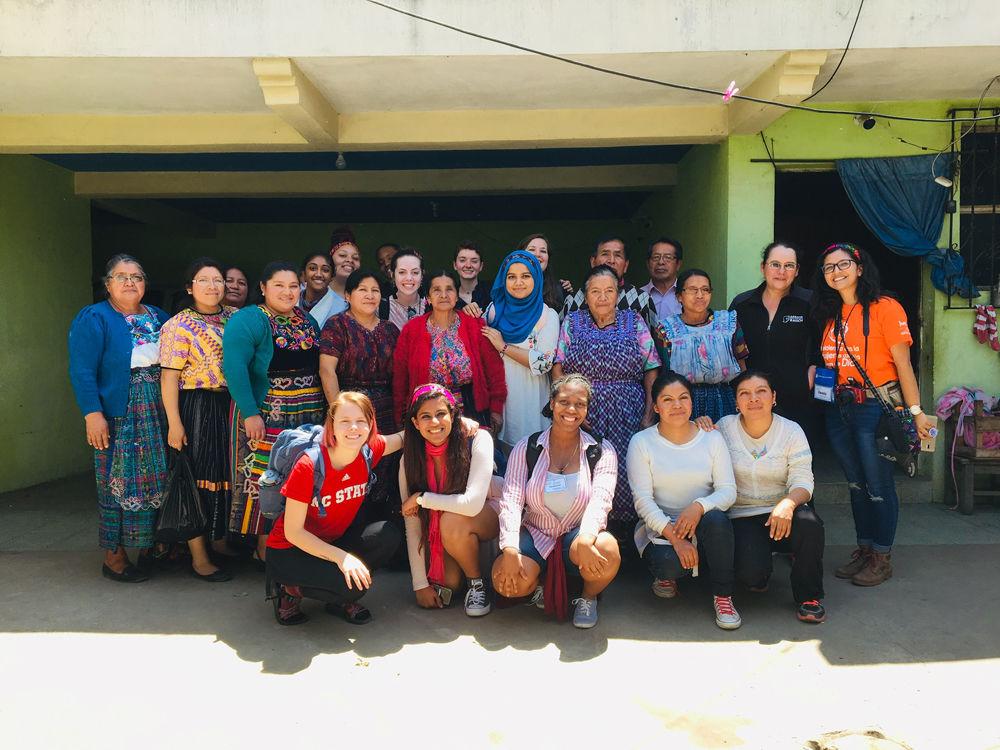
Contributed by Savannah Staten
This is a picture of the Guatemala Gender ASB group and the women of the Fraternidad de Presbiteriales Maya. They provide local Guatemalans with sustainable ways to farm and cook.
The Office of Leadership and Civic Engagement has partnered with the Women’s Center for more than ten years to create the Alternative Spring Break (ASB) Guatemala trip. Here, students have the opportunity to broaden their horizons and global viewpoint on gender studies and other prominent issues in society.
Adam Culley, the assistant director of the Office of Leadership and Civic Engagement on campus, stated the partnership with the Women’s Center was imperative in order for the ASB program to grow. In addition, he explained that the director of the Women’s Center thought of the idea for the Guatemala trip many years ago.
According to Culley, the Women’s Center is mainly responsible for creating the trip experience for participants, while the Office of Leadership and Civic Engagement focuses on constructing the logistics of the trip, including potential capacity and cost.
Savannah Staten, a second-year studying women and gender studies and English, as well as the trip’s co-lead, said that participants have the opportunity to be immersed in activities that pertain to gender inequality in the region due to the current civil war.
According to Staten, participants on the trip met with women’s cooperatives in Guatemala and participated in political events, such as a women’s march.
“I was interested in things about gender issues, and just about gender equality in general,” Staten said. “But I hadn’t decided whether or not I wanted to study it, so I wanted to kind of just get my feet wet a little bit, and the trip was really perfect for that.”
The trip participants spent their time not only experiencing a piece of another culture, but also went head-to-head with heavy war situations and stories. Staten recalled a time when she sat with women in Guatemala and heard their very detailed experiences of the civil war.
“These women had been displaced and we heard their stories: how they walked through the mountains for weeks, and how they just struggled, to regain a life and respect in their communities, after the civil war,” Staten reflected.
According to Staten, hearing these stories prompted reflection not only regarding gender roles, but also within the context of citizenship and privilege.
“You find yourself questioning your beliefs and your values, as a United States citizen and in relation to foreign affairs,” Staten said. “Then also you find yourself checking your privilege, and acknowledging your privilege, and kind of seeing what you do with that privilege to make lives for other folks better.”
Staten now plans on visiting her high school alma mater to present her experiences on the trip later this month.
“It’s called a ‘service break’ trip, but you’re not there to build anything, you’re not there to teach anyone,” Staten said. “Your service is what you do when you return.”